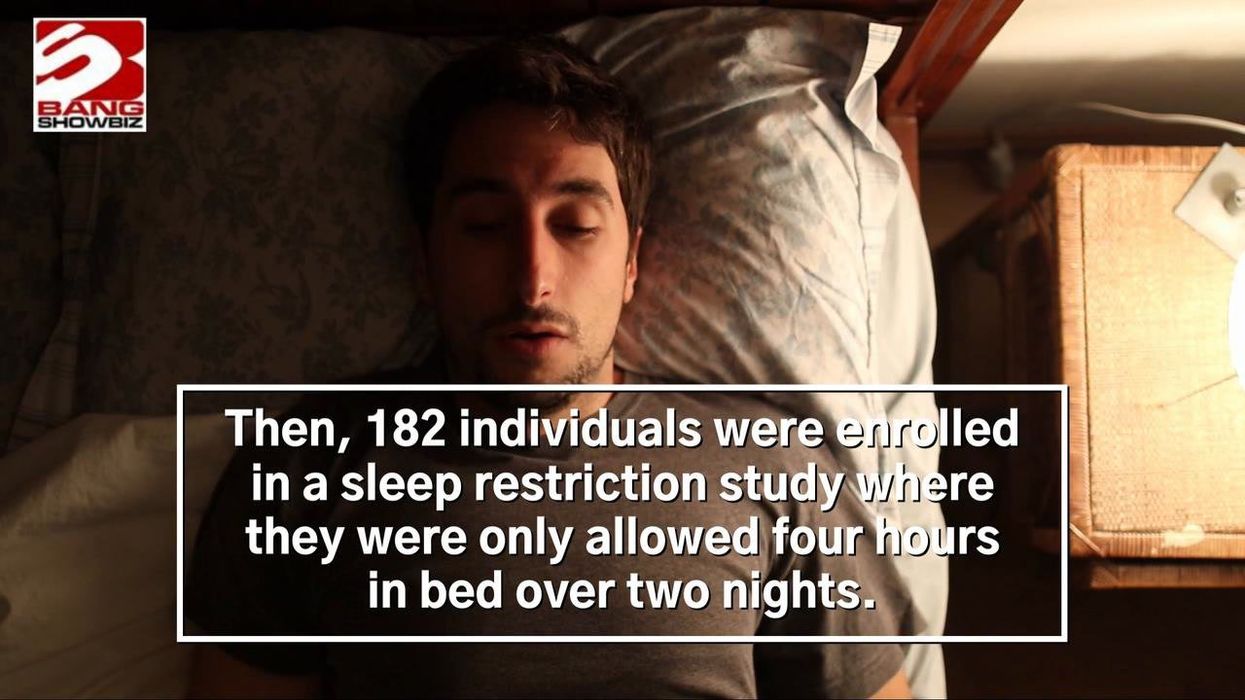Liam O'Dell
Mar 27, 2024
Terrible sleep makes people feel years older
Bang Showbiz - Bang Bizarre / VideoElephant
We all love our beauty sleep, and of course it has essential health benefits - so much so that a study has found one thing we’re all guilty of at some point can make us feel up to four years older than we actually are.
Swedish researchers recruited 429 UK citizens across two studies to investigate the correlation between sleep and age, with Leonie Balter and John Axelsson writing in Proceedings of The Royal Society B that “sleep is not only crucial for physical wellbeing but also for mental health”.
“During sleep, the brain undergoes essential processes, including clearance of metabolic waste products, filling up of proteins in synapses and memory consolidation.
“Although it is undisputed that sleep is central for health, its relevance for how young someone feels has received limited attention,” the academics – from the Karolinska Institutet in Stockholm - explain.
A study from Kings College London has already established why people should head to sleep at the same time every night in order to avoid so-called ‘social jetlag’, but the Swedish scientists wanted to know exactly how sleep deprivation can influence our perception of how young we feel on the inside.
While the first study found that for each extra day of poor sleep in 30 days added 0.23 years to participants’ “subjective age”, the second study revealed that just two nights of “sleep restriction” (based on four hours in bed per night) had the effect of making people feel four years older.
In more striking evidence, for those who moved up what’s known as the ‘Karolinska Sleepiness Scale’ from extremely alert to extremely sleepy (from one to nine), felt a whole decade older in both studies.
And it worked the other way, too, with participants in both studies saying they felt younger after “sleep saturation”, and those who managed to avoid a single day of not getting enough sleep over 30 days reporting they felt, on average, more than five years younger than what they actually are.
The researchers argue feeling younger than we actually are actually does have a physical impact (so, not just giving you an ego boost, then), citing studies which suggest it’s linked to living longer, a boost in our mental and physical health, and “more positive psychological traits” such as resilience, hope and optimism.
And lord knows we could all do with some more hope and optimism, looking at the state of the world…
In their discussion of the findings, the academics write: “The analyses … showed that the importance of sleep for subjective age increases with older age, that the relationships are true for both prolonged periods of insufficient sleep and for as little as two nights of insufficient sleep, that sleepiness is a likely mediator for feeling older, and that the relationship between insufficient sleep and feeling older is causal, driven by sleepiness.
“While the previous literature has shown that feeling older is associated with worse sleep quality, our data indicate that sleep may be more important for subjective age than the other way around. These findings support that sleep, a vital biological phenomenon, might hold the key to feeling young.”
The duo note, however, that they only looked at sleep duration, deprivation and sleepiness influence our age perception. They didn’t examine other factors such as tiredness, fatigue and the actual quality of the sleep itself.
Sign up to our free Indy100 weekly newsletter
Have your say in our news democracy. Click the upvote icon at the top of the page to help raise this article through the indy100 rankings.
Top 100
The Conversation (0)














